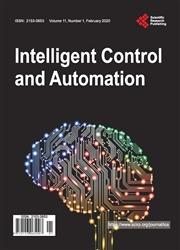Generalized Attack Model for Networked Control Systems, Evaluation of Control Methods
引用次数: 8
Abstract
Networked Control Systems (NCSs) have been implemented in several different industries. The integration with advanced communication networks and computing techniques allows for the enhancement of efficiency of industrial control systems. Despite all the advantages that NCSs bring to industry, they remain at risk to a spectrum of physical and cyber-attacks. In this paper, we elaborate on security vulnerabilities of NCSs, and examine how these vulnerabilities may be exploited when attacks occur. A general model of NCS designed with three different controllers, i.e., proportional-integral-derivative (PID) controllers, Model Predictive control (MPC) and Emotional Learning Controller (ELC) are studied. Then three different types of attacks are applied to evaluate the system performance. For the case study, a networked pacemaker system using the Zeeman nonlinear heart model (ZHM) as the plant combined with the above-mentioned controllers to test the system performance when under attacks. The results show that with Emotional Learning Controller (ELC), the pacemaker is able to track the ECG signal with high fidelity even under different attack scenarios.网络控制系统的广义攻击模型及其控制方法评价
网络控制系统(NCS)已经在几个不同的行业中实现。与先进的通信网络和计算技术的集成允许提高工业控制系统的效率。尽管NCS为行业带来了所有优势,但它们仍然面临着一系列物理和网络攻击的风险。在本文中,我们详细阐述了网络控制系统的安全漏洞,并研究了在发生攻击时如何利用这些漏洞。研究了用比例-积分-微分(PID)控制器、模型预测控制(MPC)控制器和情感学习控制器(ELC)三种不同控制器设计的网络控制系统的通用模型。然后应用三种不同类型的攻击来评估系统性能。在案例研究中,使用塞曼非线性心脏模型(ZHM)作为对象的网络起搏器系统与上述控制器相结合,以测试系统在受到攻击时的性能。结果表明,使用情绪学习控制器(ELC),即使在不同的攻击场景下,起搏器也能够高保真地跟踪ECG信号。
本文章由计算机程序翻译,如有差异,请以英文原文为准。
求助全文
约1分钟内获得全文
求助全文

 求助内容:
求助内容: 应助结果提醒方式:
应助结果提醒方式:


